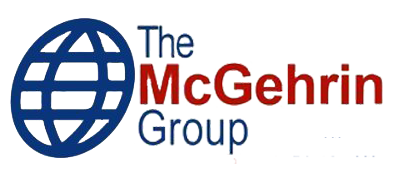Talent acquisition comprises some serious power hitters such as recruiters, HR professionals, hiring managers, and recruiting sources. They are tasked to find the perfect executive candidates for any organization, company, or firm. Typically, in a corporate setting, the umbrella of human resources (HR) is the key player in attracting, sourcing, interviewing, hiring, and onboarding the newest recruit.
Talent Acquisition Recruiter
Most talent acquisition teams use recruiters who work across many jobs and industries to find the correct personality type for the position. Recruiters are usually individuals who can quickly access the big picture of a company and figure out the right executive candidate to fill the position. They are always on the lookout for top talent. Remember, they also work to sell the job to the applicant. They are often relentless in their pursuit and promise the world to bring on the best of the best.
Differences Between Talent Acquisition and Recruiting
Both talent acquisition and recruiting have the same goals. They want to place qualified people in open positions. However, job recruiters tend to address only a company’s short-term needs. Talent acquisition is looking to fill positions for the overall business’s long-term benefit. They want real talent and tend to focus on executive candidates who will provide continued future success. Talent acquisition is about filling seats and identifying and vetting the perfect candidate for the company’s leadership roles.
Understanding the Talent Acquisition Process
There is a process involved in hiring talent, and it can take many steps and even months to complete.
Talent acquisition tends to follow these steps:
-
Sourcing Combined with Lead Generation
Things start with a genuinely irresistible job description conveyed throughout a wide array of sources such as communities where specialties gather, social networks, industry events, conferences, and online forms. Networking is a big way to build relationships and get to know talent. The goal is to create a large pool of potential candidates and a pipeline of possible hires.
2. Recruiting
The company should have a strong brand and culture. They should offer a competitive compensation package for their executive candidates with key components to attracting the industry’s rockstars. The entire experience of being a potential executive candidate should feel optimistic.
3. Interviewing
Interview questions are usually built around three to five essential tasks directly involved in the executive position being recruited for. The questions give key performance indicators. They will display the candidate’s ability to solve problems, function in a resourceful manner, and think quickly on their feet. A skills test such as a sample writing or programming task might also be given in some cases. On rare occasions, a personality and cognitive evaluation are performed for executive positions.
4. References
It’s true, many hiring managers skip checking references, but others will want to validate their choice by checking references to reinforce their final decision. Anyone applying for an executive candidate must have all their ducks in a row with proper references, letters of reference, and current contact numbers. It’s imperative to validate character and qualifications through rock-solid references.
5. Final Selections
C-suite and other employees might be involved in making a final selection. Sometimes people tracking and executive software are used to create an internal grading system.
6. Hiring and Onboarding
The talent acquisition team is usually not solely tasked with hiring and onboarding; it is one of the final steps in the process. All onboarding must be streamlined for success.
Talent Acquisition Reimagined
The COVID19 pandemic has reimagined talent acquisition in a lot of ways. According to Jobvite, 84 percent of recruiters hire remotely, and 58 percent are using social media networks like LinkedIn, Facebook, and Instagram to reach out to potential executive candidates and new hires. In addition, over half are now using the services to actively advertise and spread the word about open positions.
Video conferencing solutions for screening and interviews are now a vital component of the hiring process. In addition, digital communications tools like artificial intelligent job outreach programs are becoming common. Talent acquisition is even text messaging and calling candidates to source hires. Even analytic tools that scan resumes and data to automatically find key insights and information about a potential candidate are becoming popular to find the best candidates for the position.
The pandemic has led to many changes, and now more companies are focused on digital recruitment processes and hiring remotely. Everything is now focused on the future. Artificial intelligence-driven video interview tools examine what an executive can become instead of just looking at past job performance.
What Should an Executive Candidate Focus On?
Job seekers need to focus on their LinkedIn resumes and making them truly stellar. They should also prepare for video interviews. Nowadays, the hiring process is taking a lot longer. Candidates must accept that they will more than likely be interacting with AI-driven tools such as software programs that can pass for humans and chatbots, which will effectively screen candidates plus ask interview questions.
Talent acquisition platforms will automate the application process to scan the applicants’ resumes to look for keywords, experience, and specific skills. Having a professionally drafted resume is imperative to pass scrutiny and stand out from the rest.
Traditional Talent Acquisition Still Exists
Despite the upswing in embracing full tech for talent acquisition, some firms continue to focus on personalized interviews and screenings for executives. They prefer traditional communications. Without a doubt, anyone seeking a position needs to be ready to meet the company’s needs, whether it is a face-to-face interview or conducted entirely in the virtual realm. Typically, the key to getting in the door for an interview starts with a resume which will communicate your value proposition to the company briefly.
At the McGehrin Group, our resume and coaching services are indispensable at helping any job-seeker stand out to the talent acquisition team of a company and land an executive position. Contact us to learn more today!

